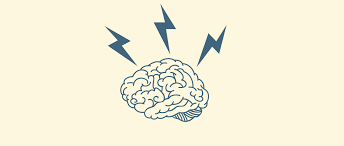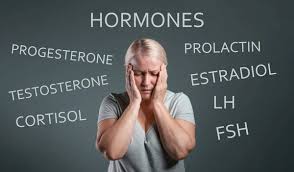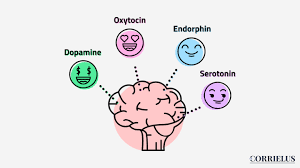Table of Contents

Introduction
Hormones are often referred to as the body’s chemical messengers. These vital substances are produced by the endocrine system and play an essential role in regulating numerous bodily functions. From controlling metabolism and growth to modulating mood and stress responses, hormones are omnipresent in our lives. However, the delicate balance of these hormones is crucial, and even a slight disturbance can lead to significant mental health issues, including depression, anxiety, mood swings, and more. This blog post will explore the nuanced relationship between hormones and mental health, providing a foundation of knowledge that is essential for anyone seeking to understand and manage their mental well-being.


The Science Behind Hormones and Mental Health
To begin with, let’s delve into what hormones are and how they function. Hormones are chemical substances produced by endocrine glands that are carried through the bloodstream to target cells and organs. These messengers regulate a wide array of bodily processes, including sleep, mood, stress responses, energy levels, and social behaviors. Among the hormones that significantly affect mental health are:
- Cortisol: Known as the “stress hormone,” cortisol is essential for the body’s response to stress. It helps regulate metabolism, immune responses, and blood pressure. However, chronic stress can lead to excessive cortisol production, which can be detrimental to mental health.
- Serotonin: This neurotransmitter is commonly referred to as the “feel-good hormone.” It influences mood, appetite, and sleep, among other things. Low serotonin levels are often associated with depression and anxiety.
- Dopamine: This neurotransmitter-hormone hybrid is crucial for motivation, pleasure, and the brain’s reward system. Dopamine deficiencies can result in a lack of motivation, anhedonia, and apathy.
- Oxytocin: Dubbed the “bonding hormone,” oxytocin is crucial for social interactions and bonding. It plays a role in trust, empathy, and overall mental well-being.
- Estrogen and Progesterone: These sex hormones are primarily associated with female reproductive health but are also found in men. They influence mood, cognition, and emotional regulation.
- Testosterone: Although typically linked to male characteristics, testosterone is present in all genders and impacts mood and energy levels.
- Thyroid Hormones: These hormones regulate metabolism, energy levels, and mood, among other functions.
The communication between hormones and the brain is a critical aspect of mental health. The hypothalamic-pituitary-adrenal (HPA) axis is the central system that connects the endocrine and nervous systems. The hypothalamus and pituitary gland in the brain work together to maintain hormonal balance, which in turn affects the production of neurotransmitters, which are chemicals that transmit messages between neurons and play a significant role in regulating mood and mental health.
The Impact of Hormonal Imbalances on Mental Health
Now that we have a basic understanding of hormones and their functions, let’s examine how hormonal imbalances can affect mental health:
Stress and Cortisol
Cortisol is the body’s primary stress hormone, which helps us respond to acute stressors by preparing the body for the “fight-or-flight” response. However, when stress becomes chronic, cortisol levels remain elevated, which can lead to several mental health issues, including:
- Increased anxiety and irritability
- Impaired cognitive function, such as memory and concentration
- Higher risk of developing depression
Mood Regulation: Serotonin and Dopamine
Serotonin and dopamine are two neurotransmitters that are heavily involved in mood regulation.
- Serotonin: Often linked to feelings of well-being, low serotonin levels can contribute to depression, anxiety, and mood swings. Selective serotonin reuptake inhibitors (SSRIs), a common class of antidepressants, work by increasing the availability of serotonin in the brain.
- Dopamine: This neurotransmitter is associated with motivation and the experience of pleasure. Low dopamine levels can result in decreased motivation, anhedonia (the inability to feel pleasure), and a general lack of enthusiasm for life.


Oxytocin: The Social Hormone
Oxytocin plays a significant role in social bonding and trust. It is released during activities such as childbirth, breastfeeding, and physical touch, fostering feelings of closeness and connection. Low oxytocin levels may be associated with:
- Difficulties in forming and maintaining relationships
- Social anxiety
- Certain mental health conditions like autism spectrum disorders
Sex Hormones
Fluctuations in sex hormones can also affect mental health:
- Estrogen and Progesterone: These hormones are crucial for emotional regulation. Imbalances can lead to mood swings, irritability, and depressive symptoms, especially during the menstrual cycle, pregnancy, and menopause.
- Testosterone: Although commonly associated with men, testosterone also affects women’s mood and energy. Low testosterone levels in either gender can cause fatigue, depression, and reduced self-confidence. High levels may contribute to aggressive behavior.
Thyroid Hormones and Mental Health
The thyroid gland produces hormones that regulate metabolism. Disruptions in these hormones can have profound effects on mood:
- Hypothyroidism: An underactive thyroid can lead to symptoms such as fatigue, weight gain, and cognitive impairments. It is often linked to depression.
- Hyperthyroidism: An overactive thyroid can cause anxiety, irritability, and mood instability.
Life Stages and Hormonal Shifts
Hormonal fluctuations are a natural part of life, and these shifts can significantly impact mental health:
- Adolescence
The onset of puberty brings about a surge in hormones, particularly testosterone and estrogen. This period of significant hormonal change can make adolescents more vulnerable to anxiety and depression. - Pregnancy and the Postpartum Period
Pregnant women experience dramatic increases in estrogen and progesterone, which can affect mood stability. After childbirth, the sudden drop in these hormones can lead to postpartum depression (PPD), characterized by persistent sadness, fatigue, and feelings of inadequacy. - Menopause and Andropause
Menopause is marked by a decline in estrogen levels, which can cause irritability, anxiety, and depression. Similarly, andropause, or male menopause, involves a gradual decrease in testosterone, which may result in mood swings, low energy, and depressive symptoms. - Aging and Hormonal Decline
As we age, the production of hormones such as estrogen, testosterone, and growth hormone decreases. This decline can contribute to cognitive issues, memory loss, and mood disorders.
Disorders Linked to Hormonal Imbalances
Several mental health disorders have been associated with hormonal imbalances:
- Adrenal Disorders
- Cushing’s Syndrome: Excess cortisol can lead to mood swings, anxiety, and depression.
- Addison’s Disease: Cortisol deficiency results in fatigue, irritability, and low mood.
- Thyroid Disorders
- Hypothyroidism: This condition is characterized by depression, sluggishness, and cognitive issues like brain fog.
- Hyperthyroidism: It is marked by anxiety, restlessness, and mood instability.
- Premenstrual Dysphoric Disorder (PMDD)
A severe form of premenstrual syndrome (PMS), PMDD is associated with significant mood swings and depressive symptoms due to hormonal fluctuations. - Polycystic Ovary Syndrome (PCOS)
PCOS affects the production of estrogen, progesterone, and testosterone, which can contribute to anxiety, depression, and mood swings.
Maintaining Hormonal Balance for Optimal Mental Health
To support mental well-being, it is essential to maintain hormonal balance. Several lifestyle changes and practices can help achieve this:
Diet and Nutrition
Consuming a diet rich in omega-3 fatty acids, fiber, and antioxidants can support hormonal health. Additionally, micronutrients such as magnesium, zinc, and vitamin D are critical for mood regulation.
Physical Activity
Regular exercise is a natural mood booster that helps balance cortisol levels and promotes the production of endorphins, which improve mood and reduce stress.
Sleep Hygiene
Getting adequate, high-quality sleep is vital for hormonal regulation. Disrupted sleep can affect cortisol, melatonin, and serotonin production, all of which are essential for mental health.
Stress Management
Engaging in stress-reducing activities such as mindfulness, meditation, and yoga can help manage cortisol levels effectively.
Avoiding Hormone Disruptors
Limit exposure to endocrine-disrupting chemicals found in plastics, pesticides, and certain personal care products, which can interfere with hormone function.
Advances in Hormonal Research and Mental Health
Recent developments in hormonal research offer promising avenues for improving mental health:
Emerging Therapies
- Hormone replacement therapy (HRT) is increasingly used to address symptoms associated with menopause and andropause.
- Innovative treatments are being explored that target oxytocin to treat social anxiety and post-traumatic stress disorder (PTSD).
Personalized Medicine
As we learn more about the unique hormonal profiles of individuals, tailored treatments are becoming more accessible, leading to more effective mental health interventions.
Seeking Professional Help
When lifestyle changes are not enough to manage mental health issues potentially linked to hormonal imbalances, it is crucial to seek professional assistance.
When to Consult a Doctor
If you are experiencing persistent symptoms such as fatigue, mood swings, or unexplained weight changes, it is advisable to consult with a healthcare professional.
Diagnostic Tools
Blood tests and other diagnostic methods can be used to identify hormonal irregularities that may be contributing to mental health issues.
Collaborative Care
In complex cases, endocrinologists and mental health professionals may work together to address hormonal imbalances and their psychological effects.
Debunking Myths About Hormones and Mental Health
To foster a more informed public discourse, it is essential to clarify common misconceptions:
- “Hormones only affect women.” While hormonal changes are more frequently discussed in the context of women’s health, hormones play a significant role in men’s mental health as well.
- “Hormonal imbalances are rare.” In reality, hormonal imbalances are relatively common and can occur at any life stage.


Conclusion
In conclusion, the relationship between hormones and mental health is intricate and far-reaching. By gaining a comprehensive understanding of this connection and adopting a proactive approach to hormonal balance, individuals can significantly enhance their mental well-being. Recognizing the signs of hormonal shifts, addressing imbalances, and implementing healthy habits can lead to a more balanced and fulfilling life. The journey toward mental health is multifaceted, and hormones are a crucial piece of the puzzle. As science continues to uncover the depth of hormones’ influence, it is essential to stay informed and advocate for a holistic view of mental health that considers the profound impact of these vital chemical messengers.